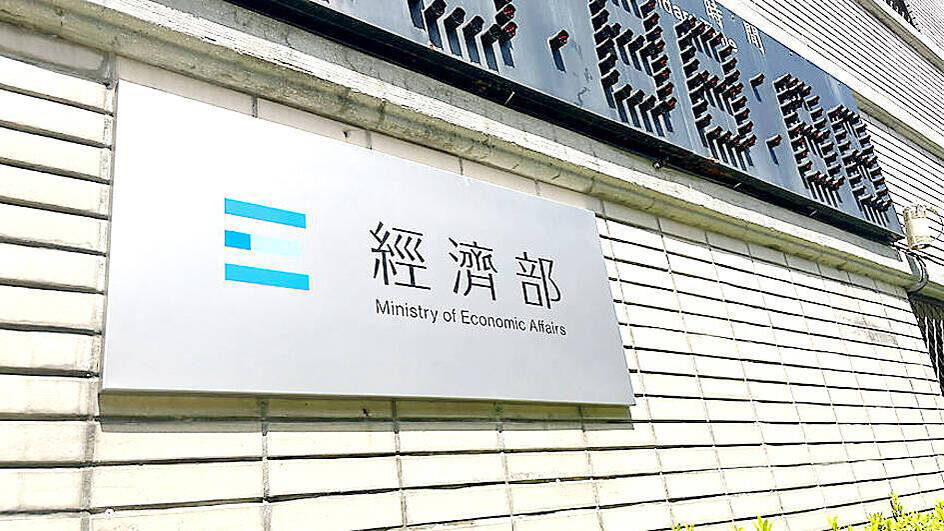Taiwan has not recorded any exports of machine tools to Russia since it updated a list of restricted items in March in line with international export sanctions put in place after Russia’s invasion of Ukraine in February 2022, the Ministry of Economic Affairs (MOEA) said on Friday.
The list of goods banned for export to Russia was updated on March 8, which added 77 categories of machine tool-related items under the Harmonized System, the internationally standardized code system of global trade, the ministry said in a statement.
With local businesses’ cooperation, Taiwan has not recorded any exports of the sanctioned goods in the category of machine tools, the ministry said.

Photo: Liao Chia-ning, Taipei Times
The ban on machine tool exports to Russia and Belarus has been introduced, because the equipment can be used by the military to manufacture artillery, the ministry said.
The penalty for first-time violations of exporting to Russia and Belarus has been increased by over 15 times to NT$1 million (US$31,281), the ministry said.
The ministry’s statement was in response to a more than 60-page report by UK-based think tank Royal United Services Institute for Defence and open-source intelligence organization Security and the Open Source Centre about Russia’s artillery supply chain.
Published on Oct. 15 and titled Ore to Ordnance: Disrupting Russia’s Artillery Supply Chains, the words “Taiwan” or “Taiwanese” were mentioned 10 times.
One section of the report highlighted China’s role as a re-export hub of sanctioned machine tools manufactured by a coalition of countries that have sanctioned Russia.
The report said that at least 2,113 companies supplied machine tools produced in Western countries to Russia during last year and the first three months of this year.
Among these companies, 26.16 percent were Turkish and 17.5 percent were Chinese.
“The rest of the suppliers originate from Germany (8.50 percent), South Korea (6.75 percent), Taiwan (6.08 percent), Italy (5.92 percent), the UAE (4.63 percent), Lithuania (2.47 percent) and Serbia (2.21 percent),” the report said.
The report also said that Chinese companies accounted for 41 percent of Japanese machine tool products exported to Russia, 26 percent of Taiwanese products and 19 percent of South Korean products.
However, only five of the 36 top Chinese companies supplying Russia with machine tools have been sanctioned by the democratic camp led by the US, the report said.
Chinese subsidiaries of 10 companies from the coalition of democracies are listed in the report because their sales to Russia exceeded US$800,000 during last year and the first three months of this year.
Three of the 10 companies in China were set up by Taiwanese firms, two each by businesses based in South Korea, Germany and the US, and one in Japan, the report said.
Asked for comment, the ministry said it would not comment on individual companies, stating only that 19 meetings have been held with Taiwanese businesses this year to update them on the latest international rules as part of efforts to prevent the sale of sanctioned items to Russia.
The government would adjust sanctions in response to global developments, while working with like-minded countries to quash illegal trade, the ministry said.

CAUTION: Based on intelligence from the nation’s security agencies, MOFA has cautioned Taiwanese travelers about heightened safety risks in China-friendly countries The Ministry of Foreign Affairs (MOFA) yesterday urged Taiwanese to be aware of their safety when traveling abroad, especially in countries that are friendly to China. China in June last year issued 22 guidelines that allow its courts to try in absentia and sentence to death so-called “diehard” Taiwanese independence activists, even though Chinese courts have no jurisdiction in Taiwan. Late last month, a senior Chinese official gave closed-door instructions to state security units to implement the guidelines in countries friendly to China, a government memo and a senior Taiwan security official said, based on information gathered by Taiwan’s intelligence agency. The

Taiwan Semiconductor Manufacturing Co (TSMC), the world’s largest contract chipmaker, said yesterday that it is looking to hire 8,000 people this year, at a time when the tech giant is expanding production capacity to maintain its lead over competitors. To attract talent, TSMC would launch a large-scale recruitment campaign on campuses across Taiwan, where a newly recruited engineer with a master’s degree could expect to receive an average salary of NT$2.2 million (US$60,912), which is much higher than the 2023 national average of NT$709,000 for those in the same category, according to government statistics. TSMC, which accounted for more than 60 percent

The National Immigration Agency (NIA) said yesterday that it will revoke the dependent-based residence permit of a Chinese social media influencer who reportedly “openly advocated for [China’s] unification through military force” with Taiwan. The Chinese national, identified by her surname Liu (劉), will have her residence permit revoked in accordance with Article 14 of the “Measures for the permission of family- based residence, long-term residence and settlement of people from the Mainland Area in the Taiwan Area,” the NIA said in a news release. The agency explained it received reports that Liu made “unifying Taiwan through military force” statements on her online

Tung Tzu-hsien (童子賢), a Taiwanese businessman and deputy convener of the nation’s National Climate Change Committee, said yesterday that “electrical power is national power” and nuclear energy is “very important to Taiwan.” Tung made the remarks, suggesting that his views do not align with the country’s current official policy of phasing out nuclear energy, at a forum organized by the Taiwan People’s Party titled “Challenges and Prospects of Taiwan’s AI Industry and Energy Policy.” “Taiwan is currently pursuing industries with high added- value and is developing vigorously, and this all requires electricity,” said the chairman